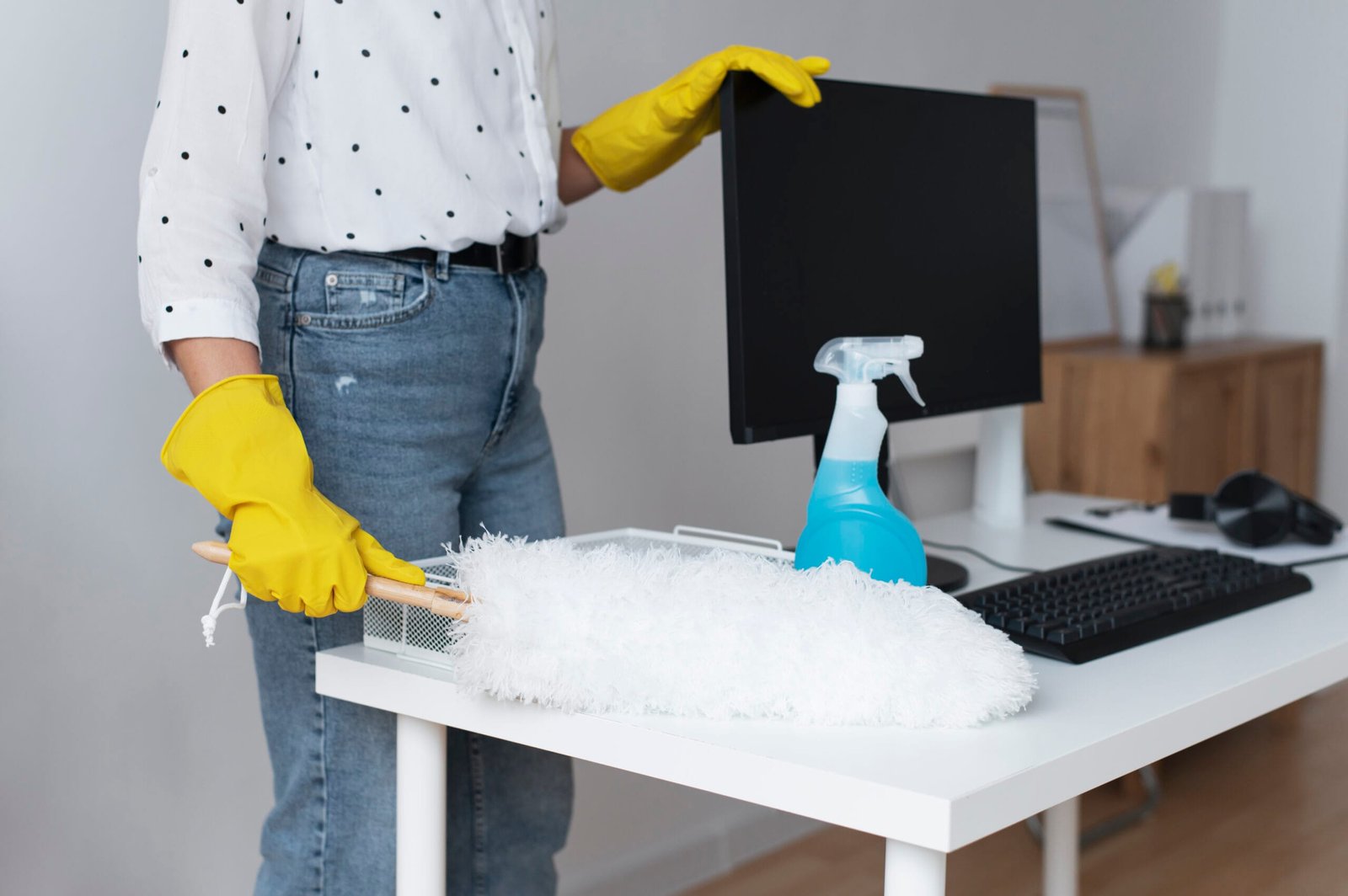
Let’s be honest—London businesses have a lot on their plates. Between tight deadlines, managing hybrid teams, and trying to remember where the good coffee is kept, cleaning usually takes a back seat. But in 2025, ignoring commercial cleaning trends could cost you more than just a dusty corner office.
I run a London-based cleaning company called OnCleaning, and I’ve been watching these trends unfold up close. So, in this article, I’m breaking down the top commercial cleaning shifts you need to know, minus the jargon and with just enough real talk to keep it interesting.
Why Should You Care About Cleaning Trends in 2025?
You might think "a mop is a mop," but not anymore. Commercial cleaning has gone high-tech, eco-conscious, and oddly data-driven. In a post-COVID, tech-hungry, health-prioritising business world, cleaning isn’t just about hygiene—it’s about reputation, employee wellness, and even your bottom line.
Plus, in a city like London where clients and customers judge with their eyes (and sometimes their noses), a clean space speaks volumes.
1. Eco-Friendly Cleaning is the New Non-Negotiable
Londoners love their oat milk lattes and reusable water bottles—so it’s no surprise that eco-friendly cleaning has gone from niche to necessary.
Green cleaning products that are biodegradable, non-toxic, and kind to allergy sufferers are now front and centre. Commercial clients are increasingly asking for cleaning practices that align with their sustainability goals.
We’ve already integrated these into our office cleaning services, and the response has been incredibly positive. It’s a small change with a big impact.
2. Smart Cleaning Technology is No Longer Sci-Fi
Remember when robot vacuums seemed futuristic? Now, we have AI-powered cleaning schedules, occupancy sensors, and data dashboards that tell you when the breakroom gets gross (hint: it’s always Friday).
London businesses are adopting tech not just to automate cleaning, but to optimise it. This means:
- Targeted cleaning in high-traffic areas
- Reduced waste in supplies
- Cleaner offices with fewer interruptions
The result? Happier teams and fewer awkward encounters with a vacuum during Zoom calls.
3. Flexible Cleaning Contracts Are on the Rise
Gone are the days of rigid cleaning schedules that feel like you’re stuck in a gym contract. With more hybrid work setups, cleaning needs shift week to week.
Businesses are asking for:
- On-demand cleaning
- Rotational deep cleans
- Night and weekend flexibility
This isn’t just convenient—it’s cost-effective. And yes, we offer this flexibility as part of our commercial cleaning services.
4. Anti-Viral Protocols Are Still a Priority
Let’s face it—COVID changed the way we think about germs forever. Even as things normalise, businesses aren’t relaxing their hygiene standards.
Expect to see:
- Hospital-grade disinfectants used regularly
- Touchpoint sanitation (think doorknobs, switches, lift buttons)
- Air purification paired with deep surface cleaning
This level of cleaning doesn’t just keep staff healthy—it reassures clients that you take hygiene seriously. For industries like hospitality and healthcare, it’s a must-have.
5. Data-Driven Cleaning Is the Quiet Game-Changer
Here’s a buzzword you’ll hear more of: analytics. It’s no longer about cleaning just because it’s Tuesday. Sensors, logs, and digital tools can now tell us exactly where cleaning is needed.
This means smarter resource use and better ROI. If that sounds techy, don’t worry. You don’t have to be a Silicon Roundabout startup to benefit—just work with a cleaning partner who gets it.
6. Focus on Employee Wellness
In 2025, workplace wellness is more than just offering free fruit. Clean, well-maintained environments are directly linked to reduced sick days and improved productivity.
Companies are prioritising:
- Fragrance-free, hypoallergenic cleaning
- Quiet cleaning methods to avoid distraction
- Clean desk policies supported by regular wipes
If you’re aiming to boost morale or simply retain your staff, this matters more than you might think.
7. Industry-Specific Cleaning is Becoming the Norm
London businesses vary wildly—law firms, gyms, cafes, co-working spaces. The one-size-fits-all approach no longer cuts it.
More companies want industry-specific cleaning expertise:
- Retail spaces need immaculate floors and spotless windows
- Medical offices require regulated sanitation
- Creative agencies might need cleaning around delicate equipment
We’ve touched on some of these in our article about deep cleaning solutions for London offices.
What Does This Mean for You?
If you’re running a business in London, 2025’s cleaning trends aren’t just nice-to-know—they’re must-know.
Whether you’re adjusting to hybrid work, upping your wellness game, or going green, your cleaning strategy needs to follow suit.
So, ask yourself:
- Is your current cleaning provider meeting modern expectations?
- Are you leveraging the benefits of smart scheduling and eco-products?
- Are your clients and staff confident in your cleanliness?
If you hesitated on any of those, it might be time to reconsider.
Final Thoughts from OnCleaning
As someone knee-deep (sometimes literally) in London’s cleaning industry, I can tell you: the businesses that adapt win.
Cleaning might not be the sexiest line item in your budget, but it’s one of the most impactful. And when it’s done right, you won’t just see the difference—you’ll feel it.
Looking to update your cleaning game in 2025? Get in touch with OnCleaning and let’s make your workplace cleaner, smarter, and ready for what’s next.
About OnCleaning
We help London businesses stay clean, compliant, and future-ready with flexible, eco-conscious commercial cleaning services. Learn more at oncleaning.pro.